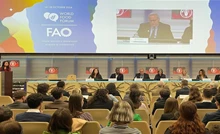
PM Narendra Modi's visit to the United States marked a significant breakthrough in trade relations between the two nations, as several hurdles in trade were successfully addressed. The discussions resulted in the resolution of six long-standing disputes at the World Trade Organization (WTO), with India and the US jointly agreeing to terminate these conflicts.
US Trade Representative Katherine Tai announced the conclusion of the disputes on Thursday. The disagreements encompassed various issues, including carbon steel products, steel and aluminum goods, solar cells, solar modules, measures pertaining to the renewable energy sector, and more. This positive outcome emerged following the 13th Ministerial-level meeting of the US-India Trade Policy Forum held six months ago.
Simultaneously, New Delhi has committed to lifting retaliatory tariffs on 28 American products. These tariffs had been imposed in response to measures taken by the former US President Donald Trump administration in 2018. The products affected by the removal of tariffs include chickpeas, lentils, almonds, walnuts, apples, boric acid, and diagnostic reagents.
In 2018, the Trump administration imposed import duties of 25 percent on steel worth USD 761 million and 10 percent on aluminum worth USD 382 million from India under US Section 232, which evaluates the impact of imports on American national security. This decision had a significant adverse effect on India's export of aluminum and steel to the US, leading to a dispute at the WTO.
As a response to the US import duty hikes, India raised tariff rates on 28 American products by as much as 120 percent in July 2018. The revised tariff rates came into effect in June 2019, one year later. In response to India's decision, Deputy USTR Jeffrey Gerrish, a high-ranking official from the US Trade Representative at the time, deemed the response "inappropriate."
The removal of retaliatory measures and the termination of the disputes at the WTO are expected to create new opportunities for US agricultural producers and manufacturers. The current US Trade Representative anticipates the restoration and expansion of market prospects for these sectors.
Ambassador Tai emphasized the significance of Prime Minister Modi's visit in reinforcing the bilateral relationship between the US and India. She acknowledged the intensive engagement over the past two years, particularly through the US-India Trade Policy Forum, which aimed to deepen economic and trade ties between the two nations. Furthermore, Tai stated that these recent developments would safeguard the "integrity" of the US Section 232 measures.











